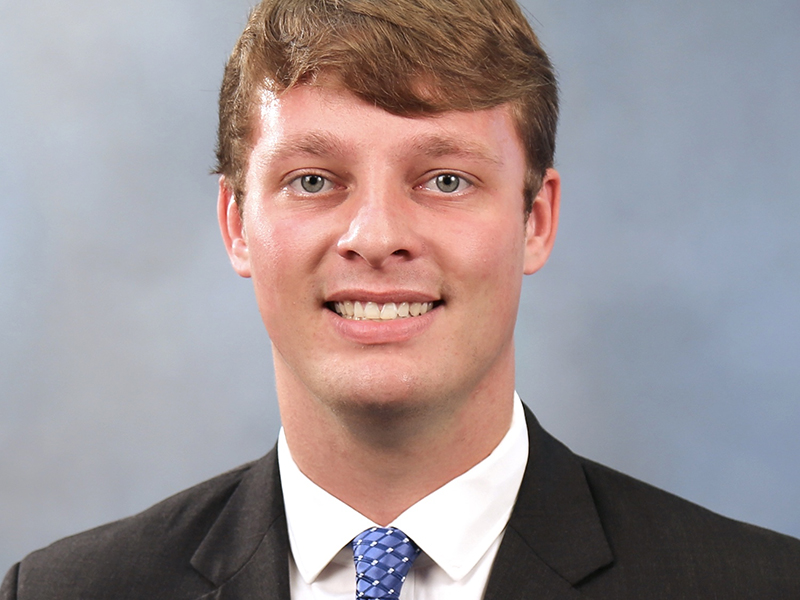Incoming Tulane public health student makes impact during COVID-19

James Noblin, an incoming student, will be pursuing his Master of Health Administration starting this Fall at the Tulane School of Public Health and Tropical Medicine, but he has wasted no time in providing assistance during the COVID-19 outbreak. Over the summer he began working with Singing River Health System, a health system based in his hometown of Ocean Springs, Miss.
“After I graduated from Mississippi State University in May with a degree in industrial and systems engineering with a minor in mathematics, I decided to reach out to Singing River to see if they needed any assistance before, I started the MHA program at Tulane,” said Noblin.
Singing River is owned and operated as a nonprofit community health system out of Jackson County, Miss. On March 5th, when the likelihood of a local outbreak became imminent, the administration of Singing River began dedicating an hour per day to COVID-19 strategy meetings. Meetings were held seven days a week and consisted of more than 70 participants and over 60 unique initiatives.
One of the early initiatives was a COVID-19 hotline that allowed providers to talk directly to patients to guide them in the right direction for screening, testing, and, if needed, treatment. As a result, patients who only needed questions answered could stay away from the hospitals and emergency rooms, minimizing facility congestion. The hotline fielded more than 400 calls per day during the peak of the crisis. They also made biweekly calls to local nursing homes to support their needs and educate the staff.
Social media helped Singing River to spread fact-based information about COVID-19, with daily Facebook live videos and robust website updates. Updates included visitation policies at system facilities, frequently asked questions, and “Singing River Strong” messages. “Singing River Strong” was the motto adopted for use throughout the pandemic.

One of the most notable initiatives that came from the daily strategy meetings was the assignment of 15 staff members who volunteered to aid patients in the navigation process following a positive COVID-19 test. As the pandemic expanded, more navigators were assigned, and the role expanded to include contact tracing, epidemiology, and education. Much of the navigators’ time was spent educating patients and their families on isolation and identification of contacts. Noblin joined this navigation team and spent his time as a contact tracer.

“I believe the main take away of Singing River’s success was the continual education about the virus to the community in conjunction with vigorous contact tracing,” said Noblin. These efforts were able to tremendously decrease the overall spread of COVID-19 within the Jackson County community.”
Noblin has written a full article on Singing River’s multiple measures to help educate and protect the surrounding community during this epidemic, which was also his first-ever publication.
